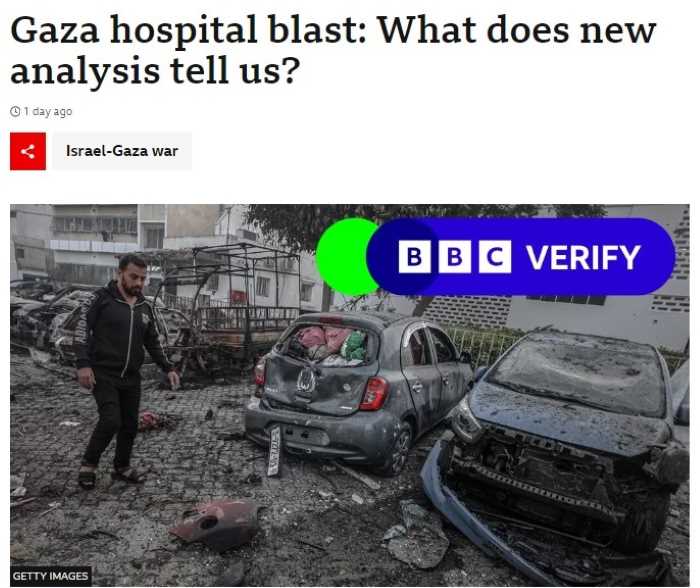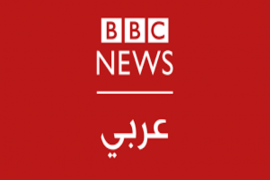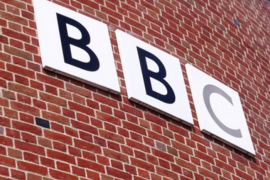Given that BBC coverage of the explosion at al Ahli hospital in the Gaza Strip on the evening of October 17th has prompted extensive public criticism – and the subsequent attempts at damage control on the corporation’s part – it is hardly surprising that its ‘fact checking’ brand BBC Verify has produced three reports on that story.
On October 18th – around 24 hours after the incident happened – the BBC News website published a BBC Verify report titled ‘Gaza hospital: What video, pictures and other evidence tell us about Al-Ahli hospital blast’ which is credited to Paul Brown, Joshua Cheetham, Sean Seddon and Daniele Palumbo.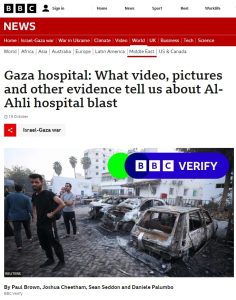
Those four BBC journalists, together with at least five others credited at the bottom of the report, were however unable to inform BBC audiences what caused the explosion and instead preferred to promote the notion of equal validity of a “claim” from a proscribed terrorist organisation and a “counterclaim” from the IDF. [emphasis added]
“The Hamas-controlled Palestinian authorities in Gaza immediately blamed Israel, claiming it was a deliberate air strike. Israel has denied involvement.
Amid the claim and counterclaim, getting to the truth is harder than ever. […]
It is also important to note that as well as the physical fighting, this conflict is playing out as an information war. This is not the first time authorities in Israel and Gaza have given completely different accounts of an explosion.”
BBC Verify states that its report is based on analysis supplied by people who do not have access to the full range of information upon which the IDF’s statements on the matter are based:
“We contacted 20 think tanks, universities and companies with weapons expertise. Nine of them are yet to respond, five would not comment, but we spoke to experts at the remaining six.”
In addition, the report quotes BBC Rushdi Abualouf in the Gaza Strip (where Hamas has long dictated the tone of reporting), a representative from a UK charity and the inadequately presented “health ministry” that is controlled by the very same proscribed terrorist organisation Hamas which initiated the current conflict by carrying out an unprecedented brutal massacre of Israeli civilians.
“The Palestinian health ministry said on Wednesday 471 people were killed in the blast.”
On October 19th, the BBC News website also published a short filmed version of that report titled ‘Gaza hospital: Breaking down video of Al-Ahli Arab hospital explosion’ and presented by Merlyn Thomas which again promotes a narrative of “competing claims and counterclaims”.
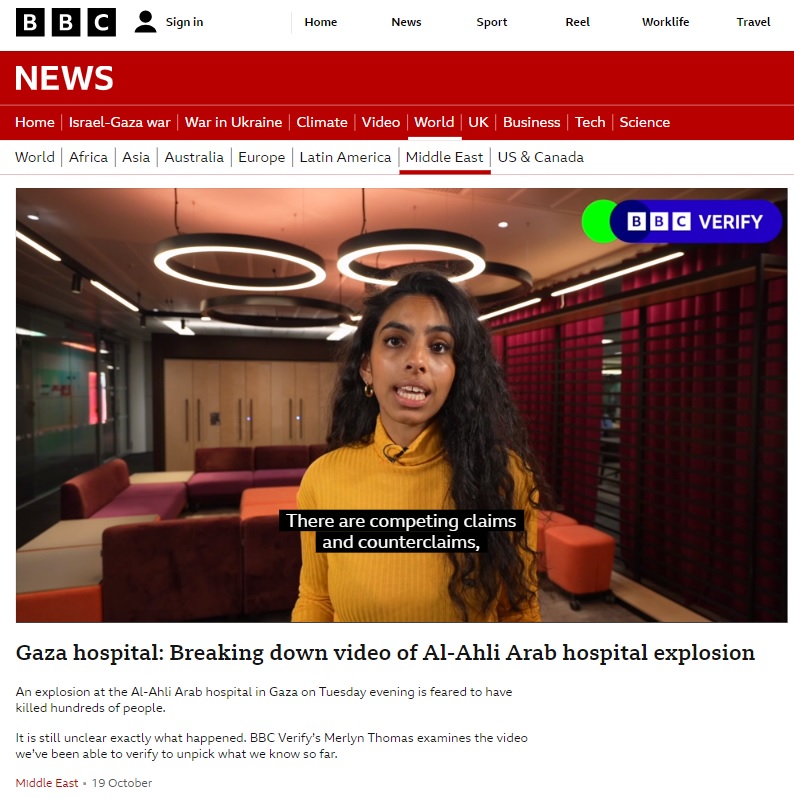
Eight days later, on October 26th, the BBC News website published yet another report on the same topic. Titled ‘Gaza hospital blast: What does new analysis tell us?’, that report is credited to Jake Horton, Joshua Cheetham and Shayan Sardarizadeh as well as eight additional people.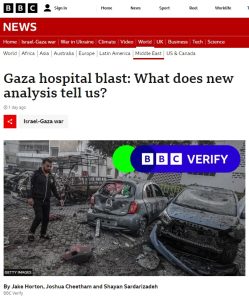
That report opens with promotion of the notion that the cause of the explosion is “still contested”:
“Nine days after the explosion at the car park of Al-Ahli Arab hospital in Gaza City, the exact cause of the blast is still contested.
The Hamas-controlled Palestinian authorities in Gaza accused Israel of hitting the hospital with an air strike. Israel said a misfiring rocket from the Palestinian Islamic Jihad (PIJ) group was to blame, which they deny.”
However it then goes on to note that three Western countries have reached the conclusion that Israel was not responsible:
“The UK said on Monday its assessment, based on intelligence and analysis by weapons experts, was that it was likely a missile fired from within Gaza towards Israel was responsible. French military intelligence also came to this conclusion.
The US had already said Israel was not to blame based on “overhead imagery, intercepts and open-source information”. The US – along with the UK and France – has not released the evidence that underpins their assessments.”
The BBC Verify article does not mention reports by AP , CNN and the Wall Street Journal which arrived at the same conclusion as those three Western governments and others.
It does however promote claims made by a former ‘Human Rights Watch’ employee with a record of producing anti-Israel reports concerning events in the Gaza Strip and a highly problematic hobby:
“Former UN war crimes investigator Marc Garlasco tweeted: “In 20 years of investigating war crimes this is the first time I haven’t seen any weapon remnants. And I’ve worked three wars in Gaza.” […]
However, Mr Garlasco said he believed the footage was consistent with an Iron Dome interception.”
In addition, BBC Verify chose to amplify – and link to – statements from the political NGO ‘Forensic Architecture’ without clarification of that organisation’s record on Israel and without mentioning the fact that its ‘analysis’ was conducted together with another political NGO – Al Haq – which is linked to a terrorist organisation and hence designated by Israel.
“The Forensic Architecture agency, a UK-based organisation which investigates human rights abuses, has carried out its own analysis of the crater, and suggests it is more consistent with the impact marks from an artillery shell which it concludes came from the direction of Israel.
It says that the scarring patterns above the crater are consistent with the shrapnel damage that would be expected from an artillery strike.”
If BBC Verify cannot even do the basic required background research on the sources it quotes and promotes and their records of political activism, then clearly its declared purpose of countering disinformation does not serve the interests of BBC audiences. For example, the use of the term ‘IOF’ – i.e. ‘Israel Occupation Forces’: a term only used by anti-Israel activists – in the Forensic Architecture tweet promoted in this report should have been enough evidence of the partiality of that organisation for BBC Verify to refrain from amplifying its ‘analysis’.
It is all too apparent that the aim of these three reports from BBC Verify is to persuade BBC audiences that the circumstances of the explosion at al Ahli hospital on October 17th are “contested” and should be viewed in terms of it chooses to present as “competing claims”.
That is a methodology with which BBC audiences are all too familiar. A BBC report from August 2014 – which remains online to this day – similarly tells readers of “disputed deadly incidents” despite the available evidence and the results of subsequent investigations.
REVISITING BBC REPORTING OF CIVILIAN DEATHS IN GAZA ON JULY 28TH 2014 – YET AGAIN
BBC’S 2014 CLAIM OF AN ATTACK ON A UN SCHOOL SHOWN TO BE INACCURATE
THIS IS WHAT IT LOOKS LIKE WHEN THE BBC WAIVES ITS FOURTH ESTATE ROLE
WHAT BEIT HANOUN TELLS US ABOUT BBC IMPARTIALITY
It is of course extremely difficult to separate these three decidedly unhelpful reports from BBC Verify – which do very little to help audiences understand what really happened at the al Ahli hospital on the evening of October 17th and in fact muddy the picture even further – from the BBC’s ongoing attempts to do damage control concerning its own reporting on that story and others. The BBC Verify brand’s handling of this subject clearly does not inspire confidence in its reporting on other topics completely unrelated to the current war between Israel and Hamas.
If, as recently claimed by Deborah Turness, the trust of audiences is the BBC’s priority, it is high time for the corporation to address its longstanding editorial policy of failing to adequately inform audiences about Palestinian terror organisations’ responsibility for the deaths of Palestinian civilians and its decision to frame such incidents as “disputed” or “contested”.
Related Articles:
WHY BBC REPORTING ON THE AL AHLI HOSPITAL INCIDENT SHOULD NOT SURPRISE
BBC EFFORTS TO DAMP DOWN CRITICISM DO NOT ADDRESS THE REAL ISSUES
THE BBC ANNOUNCES YET ANOTHER ANTI-DISINFORMATION PROJECT
BBC SMOKESCREEN FOR TERRORISTS’ USE OF HUMAN SHIELDS REACHES NEW LOW

